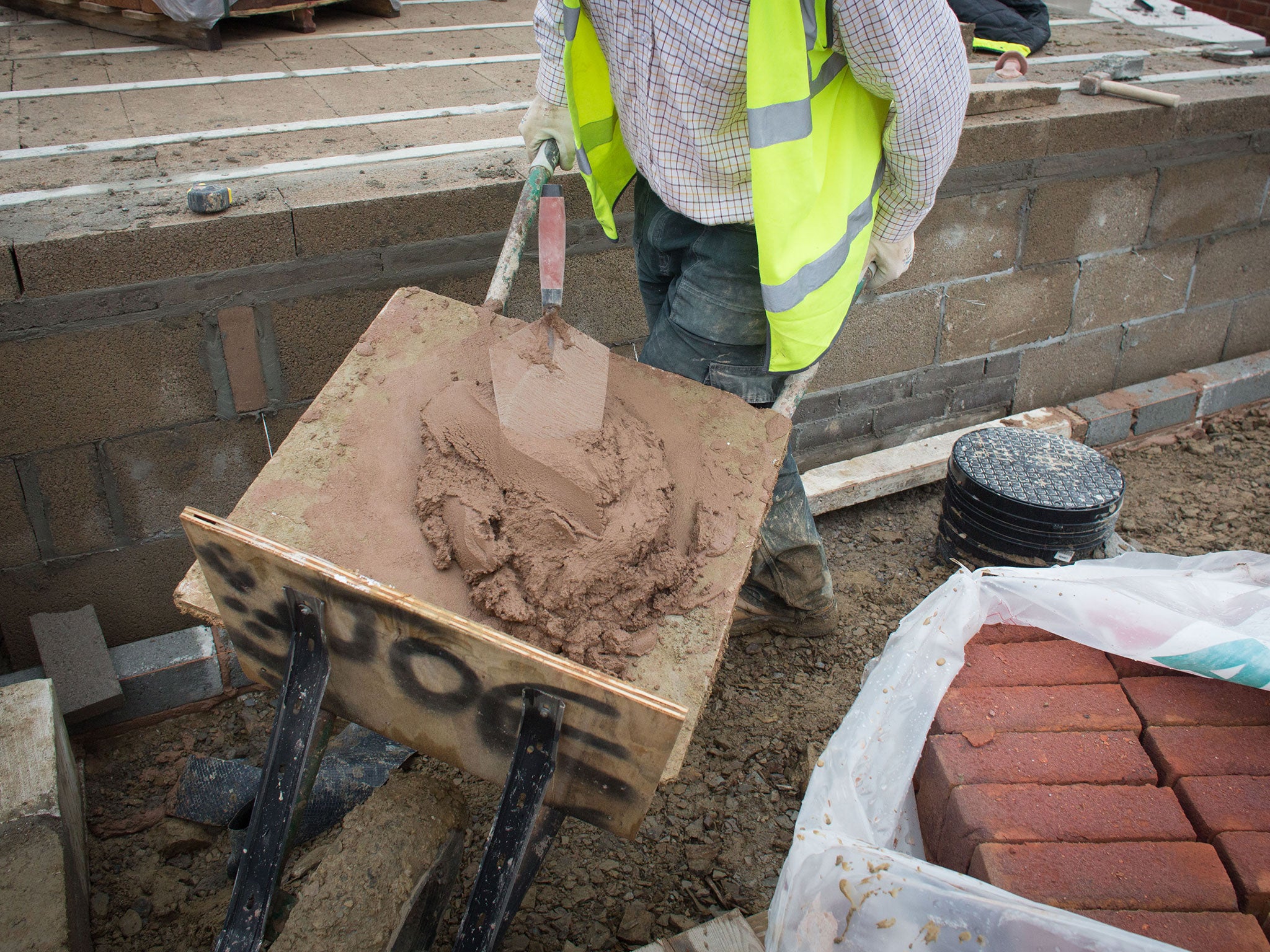Thousands of building firms feel strain despite recovery
The impact of the general election and delayed spending plans have reportedly hit smaller businesses

Your support helps us to tell the story
From reproductive rights to climate change to Big Tech, The Independent is on the ground when the story is developing. Whether it's investigating the financials of Elon Musk's pro-Trump PAC or producing our latest documentary, 'The A Word', which shines a light on the American women fighting for reproductive rights, we know how important it is to parse out the facts from the messaging.
At such a critical moment in US history, we need reporters on the ground. Your donation allows us to keep sending journalists to speak to both sides of the story.
The Independent is trusted by Americans across the entire political spectrum. And unlike many other quality news outlets, we choose not to lock Americans out of our reporting and analysis with paywalls. We believe quality journalism should be available to everyone, paid for by those who can afford it.
Your support makes all the difference.More than 23,000 building firms are in financial distress despite the recovery gathering pace, according to insolvency experts.
The number of companies in “significant” difficulties reached 23,111 in the quarter to June, up 31 per cent on a year earlier, Begbies Traynor’s figures showed.
The impact of the general election and delayed spending plans as a result particularly hit smaller businesses, Begbies said, while bigger listed players – hire firms Speedy Hire and HSS – have also delivered profit warnings to investors. The total number of companies in distress rose by 11 per cent, or more than 2,000, compared with the first three months of 2015.
Julie Palmer, a partner in the company, said: “For some time the construction industry has been plagued by supply chain issues, skilled labour shortages and spiralling building materials inflation, which together have seriously subdued construction activity since the start of the year.
“More recently, concerns over the outcome of the general election and the threat of a mansion tax have impacted output still further, causing a huge spike in financial distress this quarter across both contractors and their suppliers.”
Begbies defines a business in “significant” distress as one that faces legal claims for unpaid bills totalling up to £5,000 over the past three months, or one that has suffered a sustained deterioration in financial benchmarks such as working capital or profits.
Noble Francis, the economics director of the Construction Products Association, said the industry was in better health than implied by Begbies’ figures but added: “Often a recovery can be a dangerous time for firms because if they grow too fast it puts pressure on cashflows.”
Official figures due out tomorrow are expected to show that the overall pace of expansion in the economy almost doubled to 0.7 per cent between April and June. But construction’s contribution is likely to be flat after declines in April and May.
Join our commenting forum
Join thought-provoking conversations, follow other Independent readers and see their replies
Comments